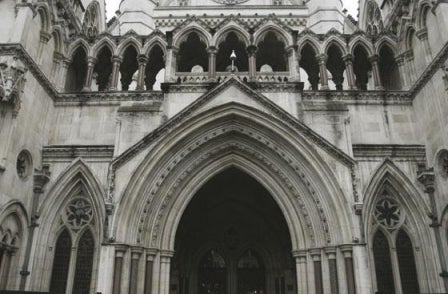
The number of privacy injunctions being applied for between July and December 2012 dropped by nearly two-thirds compared with the first half of the year, according to Ministry of Justice figures.
There were eight High Court injunction applications between July and December 2012 – down from 22 in the first half of the year.
This number, for between January and June 2012, was more than double that for the latter half of 2011, when nine applications were made.
The figures cover new injuctions, the continuation of existing order or applications for final orders.
The figures show that there were three applications for new interim injunctions during the second half of 2012 compared with nine in the first half; three cases in which the High Court had to consider whether to continue or amend an order, compared with nine in the previous six months, and two in which the court considered final orders, compared with four in the previous period.
No cases went to the Court of Appeal during the first or second half of 2012.
The Ministry of Justice figures show that of the three new applications for interim injunctions in the second half of 2012, one was sought by a male, one by a female, and the third by more than one claimant.
Two of the three applications were made on notice, so that other parties -for example, a newspaper intending to publish a story – were told of the application in advance, enabling them to oppose it if they wished.
The court granted all the new interim injunctions sought.
All three of the new interim injunctions granted involved derogations from open justice. Two of them provided for the hearings in the case to be held in private; one gave anonymity to one or more of the parties involved; two restricted access to court documents; and two involved restrictions on providing court documents to third parties.
But none involved a super-injunction – an order which includes a ban on publishing the fact that court proceedings were taking place or that an order had been made.
The three cases involving applications to continue or vary an existing interim injunction all involved orders initially granted in an earlier period.
Two of the orders were sought by a male and the other by more than one claimant.
All three applications to continue or amend injunctions were applied for "on-notice", and all three were granted by the court.
Only one of the three cases involved a derogation from open justice, providing for the hearing to be held in private, giving anonymity to one or more of the parties, and restricting access to court documents and on providing court documents to third parties.
Neither of the two cases involving applications for final privacy injunctions in the second half of last year related to interim injunctions initially granted in the same period.
One was sought by a female and the other by more than one claimant, but only one application was on notice.
Email pged@pressgazette.co.uk to point out mistakes, provide story tips or send in a letter for publication on our "Letters Page" blog
